Noah Kolb
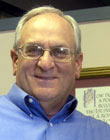
What constitutes a “calling” and how it is recognized and nurtured has been of interest in the Church from the beginning. Why did Jesus call only 12? How was James chosen as lead apostle at Jerusalem? What criteria did Paul use to appoint leaders? These were just the beginning of the elaborate processes of choosing church leadership throughout church history.
Young educated Anabaptists appointed each other launching the radical wing of the reformation with evangelists, pastors, and lay persons moving across the countryside sharing the Good News as a gospel of peace and transformation. The focus on leadership by persecutors caused the Anabaptists to constantly refocus pastoral leadership so each flock had a shepherd. The deep concern that each congregation has quality leadership still shapes the Anabaptist tradition. We devise systems to make sure persons who hear the call are indeed called, prepared, supported, and publicly affirmed with credentials. Shifting cultural and global dynamics demand that we keep asking questions, observing how God calls ministerial leaders and how persons respond.
When I read the stories of how persons continue to respond to God’s call to ministry in this issue of Intersections, reflecting on my own journey and those many persons I have walked with, several themes focused my attention.
- The call to ministry in the church persists.
As James Lapp noted, in the past, the call was not something you talked about. What mattered most was the call of the church. Almost all who in recent years heard the call focused mostly on the personal inner call from God, which was then confirmed by an outer call. What matters most today is that both the inner and outward sense of call comes together in public affirmation for fruitful ministry.
- It is exciting to see diverse groups of people; young and old, women and men, laborers and professionals, and persons of different faith backgrounds, cultures, and colors; responding to the call to pastoral ministry. There’s an array of gifts, experience, and wisdom. How can such a splendid diversity of called persons transform a historically Germanic people of faith? Can we become God’s new creation?
- The cultural differences are impacting how we hear, respond, and affirm the call of God. Women face certain obstacles and expectations that men do not. Economic demands may keep persons from responding in early years. Faith traditions use different language to express the call. Precise language and terms can no longer define who we are. We need to relate deeper to find the connections.
- The call is increasingly focused around unique gifts and ministries that reach beyond traditional clergy roles. There is less demand for the general pastor. The call is often a response to a specific kind of ministry. Congregations call for pastors who lead and can carry the vision, minister effectively to youth and young adults, or are experts in pastoral care, worship, or administration. Even as we ask which ministries of the church we should grant credentials for, the stories of call increasingly blur the lines between credentialed and non-credentialed ministries.
- The called are sustained by the grace and presence of God. Almost all of the persons who shared noted their journeys have not always been easy. The call does not lead to “happy ever after” endings. It is often attached to a deep passion that, when lived out, gives a sense of fulfillment. Frequently, the passion is hindered in some fashion. Most accept that as part of the training, growth, and shaping of ministry. Occasionally persons may step out of the call when it becomes overwhelming or unfulfilling. Can we who call the called be as gracious as God who loves and sustains those who struggle in it?
- The call is seen more as a segment of one’s whole life, rather than a lifetime commitment. In the present reality few persons commit themselves to a life-long career. This seems to be true in the call to pastoral ministry. Many persons expect a life of two or more careers and increasing numbers of persons answer the call in their 40s, 50s and even 60s. Some who began ministry in their early years later move to other careers in or out of the church. What happens to the call or the passion? Does God give a new call or is the passion shifted into another channel? How much of this is a reflection of the shifting dynamics of the culture in which one is called?
God continues to call persons to pastoral ministry and the church continues to figure out how to affirm those called. As one deeply committed to calling and affirming those God is calling the task feels more like putting a 500-piece puzzle together rather than a 100-piece. But the joy of doing it and seeing the picture is worth it all.

 Charismatic. Selfless. Fearless. Great sense of humor. Deeply spiritual. Larger-than-life. These adjectives describe a man whose gifts and calling touched more lives than he ever realized. They tell the story of a devoted husband, father, grandfather, clinician, and colleague who had an eccentric affinity for chasing storms during his leisure time and an even stronger passion for serving others while “at work.†These words don’t reveal the deeply troubled part of a genuinely compassionate man who spent his life helping others but who, in the end, could not help himself.
Charismatic. Selfless. Fearless. Great sense of humor. Deeply spiritual. Larger-than-life. These adjectives describe a man whose gifts and calling touched more lives than he ever realized. They tell the story of a devoted husband, father, grandfather, clinician, and colleague who had an eccentric affinity for chasing storms during his leisure time and an even stronger passion for serving others while “at work.†These words don’t reveal the deeply troubled part of a genuinely compassionate man who spent his life helping others but who, in the end, could not help himself.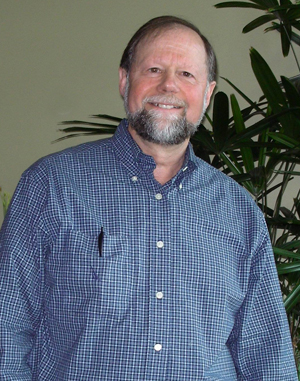 I turned 60 years of age last month. It is an important marker indicating how far I have journeyed in the path of life. For those of you who are younger, it may seem that my journey is already a long one. Many of the older adults I serve with as chaplain at
I turned 60 years of age last month. It is an important marker indicating how far I have journeyed in the path of life. For those of you who are younger, it may seem that my journey is already a long one. Many of the older adults I serve with as chaplain at 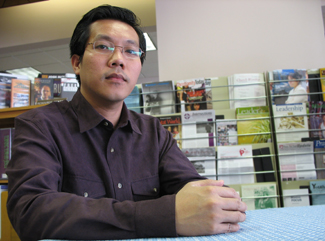 “Any place where one is working for the Lord, one will face challenges and joys,†states Pastor Hien Truong of Vietnamese Gospel Mennonite Church, Allentown, PA. Hien would know. Since his commitment to Christ as a law student in Vietnam, his journey has been marked by the struggle of persecution and the joy of following God’s call.
“Any place where one is working for the Lord, one will face challenges and joys,†states Pastor Hien Truong of Vietnamese Gospel Mennonite Church, Allentown, PA. Hien would know. Since his commitment to Christ as a law student in Vietnam, his journey has been marked by the struggle of persecution and the joy of following God’s call.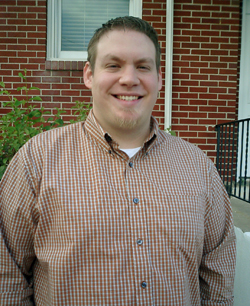 I was blessed to grow up in a Christian home with parents who loved the Lord and tried to honor Christ in all that they did. As I grew up they continually encouraged my faith, answered questions I had about being a Christian, and made it clear that I was a child who was loved and cared for by God. My father especially encouraged me to not only say that I was a Christian but also live out my faith through words and actions.
I was blessed to grow up in a Christian home with parents who loved the Lord and tried to honor Christ in all that they did. As I grew up they continually encouraged my faith, answered questions I had about being a Christian, and made it clear that I was a child who was loved and cared for by God. My father especially encouraged me to not only say that I was a Christian but also live out my faith through words and actions.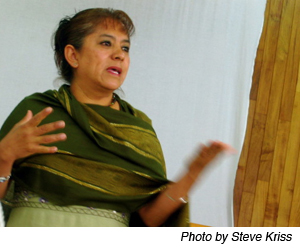 Ofelia’s dream for the developing relationships between Deep Run East and her congregation in Mexico values everyone at the same level, utilizing gifts with mutual respect, and sharing resources. While Pueblo en Transformación may not be able to contribute material resources in the same way that is possible for Deep Run East, they are able to offer an opportunity to volunteer, serve, and learn in the Mexican context, deepening the understanding of what it means to be a global Anabaptist community.
Ofelia’s dream for the developing relationships between Deep Run East and her congregation in Mexico values everyone at the same level, utilizing gifts with mutual respect, and sharing resources. While Pueblo en Transformación may not be able to contribute material resources in the same way that is possible for Deep Run East, they are able to offer an opportunity to volunteer, serve, and learn in the Mexican context, deepening the understanding of what it means to be a global Anabaptist community.